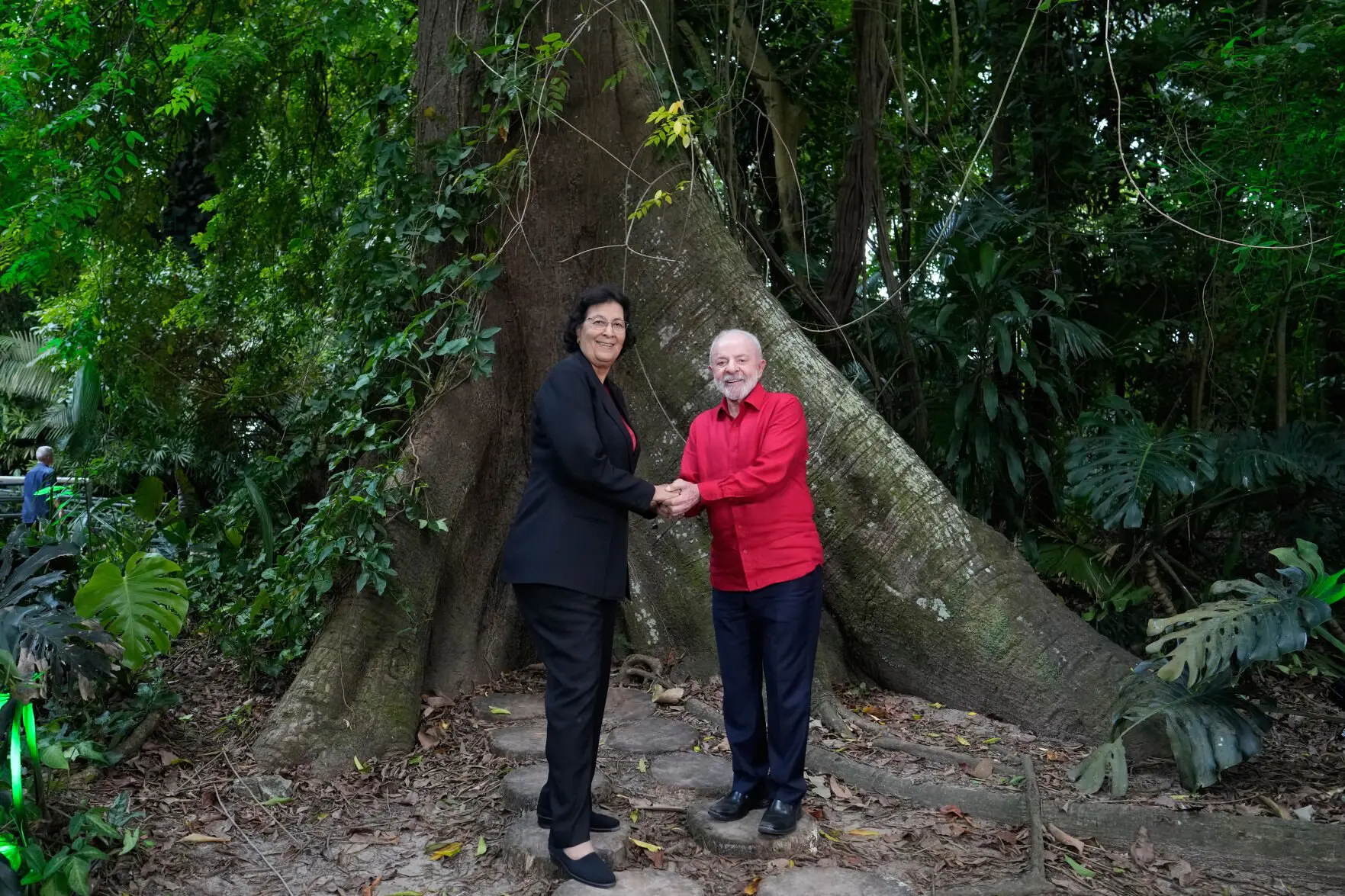PARAMARIBO, SURINAME – President Jennifer Geerlings-Simons of Suriname delivered a firm appeal at the Belém Climate Summit in Brazil for equitable climate financing, highlighting that forest nations must be compensated for preserving ecosystems that serve the planet.
The Belém Climate Summit, held on November 6 to 7, marked the leaders’ kick-off to COP30, bringing together heads of state ahead of the formal United Nations climate negotiations, which began on Monday and continue until November 21. The summit outlined political priorities and commitments before technical talks started under the United Nations Framework Convention on Climate Change (UNFCCC).
Minister Brunings underscores Suriname’s green leadership at Pre-COP30 |OilNOW
“Suriname has the highest percentage of forest cover in the world. More than 90% of our land is covered with green forests, and this forest absorbs about 12 million tons of CO₂ every year,” President Simons said in her presentation on November 6. She said that despite this contribution, “recognition alone does not improve our economy”.
She warned that climate change is already affecting the country’s low-lying coast and interior communities, while limited fiscal space makes it harder to invest in climate adaptation. “We remove carbon from the atmosphere, yet, up to today, have received no compensation for these efforts, for this contribution, which undermines our ability to keep our forests standing,” she said.
Under the Paris Agreement’s Article 5.2, rainforest countries are entitled to convert verified carbon removals into Internationally Transferred Mitigation Outcomes (ITMOs) – tradable carbon credits that allow countries to monetize the CO₂ their forests absorb by transferring these verified reductions to others seeking to meet climate targets “We have already accredited 4.8 million ITMOs… yet our net zero forest reference emission level has not yet been recognized by the UNFCCC,” she said, calling for urgent removal of these barriers.
Suriname’s carbon credit conundrum: Unlocking value in a forested future |OilNOW
She reaffirmed Suriname’s Nationally Determined Contribution (NDC 3.0), which outlines a strategy to use income from the country’s natural resources, including responsibly managed oil resources, to diversify the economy, promote inclusive green growth and preserve its forests.
Simons also endorsed Brazil’s President Lula’s Tropical Forests Forever Facility (TFFF), describing it as “a concrete step toward equitable climate finance that recognizes the true value of standing forests and their global importance”.
Oil producer Guyana is first country in the world to be issued jurisdictional carbon credits
Calling for immediate action, she stated: “Financing climate action is not charity. It is compensation for nature’s services… Suriname is already doing its part. We expect the major emitters to do theirs.”



